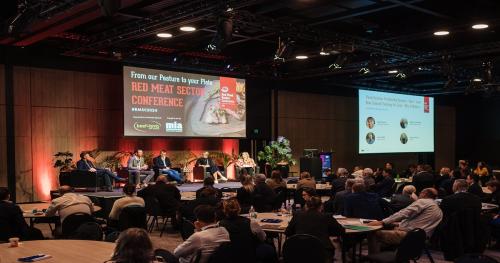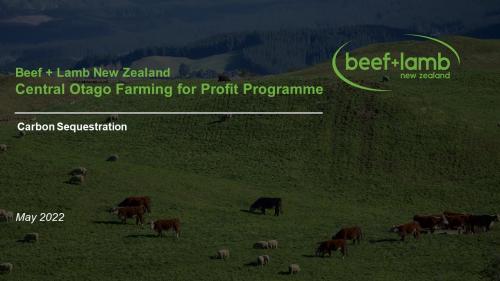Search results
Displaying 361 - 370 results of 909
- PodcastCheck out B+LNZ’s resources on equity partnerships . Breakfeeds are shorter podcasts from Beef + Lamb New Zealand. Check out our other resources on farm succession on the Knowledge …
- Factsheet… calves animals under stress around calving weaning diagnosis treatment you suspect your …
- VideoSpecific examples of vegetation suitable for carbon sequestration in Central Otago will be provided. Speakers Erica Van Reenan (AgFirst, He Waka Eke Noa) – As well as her role as a farmer and …
- NewsRun by AgResearch and supported by industry stakeholders including Beef + Lamb New Zealand, the Ministry for Primary Industries and the NZ Landcare Trust the ‘Understanding the impacts of sheep …

- NewsThe recent Red Meat Sector Conference in Wellington featured a Beef + Lamb New Zealand-sponsored panel where leading farmers discussed their personal perspectives on sustainability, intergenerational …

- Factsheetseptember 2021 ministry environment ministry primary industries certified freshwater farm plans regulations stock exclusion regulations proposed changes low slope map beef lamb new zealand ltd …
- Factsheetseptember 2021 ministry environment ministry primary industries certified freshwater farm plans regulations stock exclusion regulations proposed changes low slope map beef lamb new zealand ltd …
- Industry data… farmers reported disappointing lamb growth weaning weights were expected down hopes good … cause fewer lambs reach target weights weaning drafts record high prices during … own lambs given slow start spring lower weaning weights otagosouthland farmer morale …
- Editable PDF… weeks cattle performance sell 100 beef cows weaning replace 18mth bulls kill bulls …
- NewsBeef + Lamb New Zealand’s Mastering Your Farm Financials Workshop proved popular with farmers wanting to better understand the financial side of their business. The workshop was part of last year’s …

